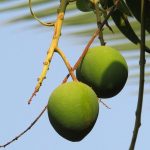African mango is a popular weight loss supplement that has been used for centuries in traditional African medicine. It is made from the seeds of the African mango tree, which is native to Central and West Africa. The seeds are rich in fiber, antioxidants, and other nutrients that are believed to promote weight loss. African mango has been shown to help people lose weight by suppressing appetite, increasing metabolism, and reducing body fat. It may also help to improve blood sugar control and reduce cholesterol levels.
**How does African mango work?**
African mango contains a number of compounds that are believed to promote weight loss. These compounds include:
* **Fiber:** Fiber is a type of carbohydrate that cannot be digested by the human body. It helps to promote satiety and reduce appetite.
* **Antioxidants:** Antioxidants help to protect the body from damage caused by free radicals. Free radicals are unstable molecules that can damage cells and DNA. Antioxidants may help to reduce the risk of obesity and other chronic diseases.
* **Phytosterols:** Phytosterols are plant compounds that are similar to cholesterol. They help to block the absorption of cholesterol in the gut.
* **Fatty acids:** African mango contains a number of fatty acids, including linoleic acid and oleic acid. These fatty acids are essential for good health and may help to promote weight loss.
**What are the benefits of African mango?**
African mango has been shown to provide a number of benefits, including:
* **Weight loss:** African mango has been shown to help people lose weight by suppressing appetite, increasing metabolism, and reducing body fat.
* **Improved blood sugar control:** African mango may help to improve blood sugar control by reducing insulin resistance.
* **Reduced cholesterol levels:** African mango may help to reduce cholesterol levels by blocking the absorption of cholesterol in the gut.
* **Other benefits:** African mango may also have other benefits, such as reducing inflammation, improving digestion, and boosting energy levels.
**How to take African mango**
African mango is available in capsule or tablet form. The recommended dosage is 500-1,000 mg per day. It is important to take African mango with plenty of water.
**Side effects of African mango**
African mango is generally safe for most people. However, it may cause some side effects, such as:
* **Nausea:** African mango may cause nausea in some people.
* **Vomiting:** African mango may cause vomiting in some people.
* **Diarrhea:** African mango may cause diarrhea in some people.
* **Headache:** African mango may cause headaches in some people.
**Precautions**
African mango is not recommended for people who are pregnant or breastfeeding. It is also not recommended for people who have a history of liver or kidney disease.
**Conclusion**
African mango is a popular weight loss supplement that has been shown to be effective for many people. It is made from the seeds of the African mango tree, which is native to Central and West Africa. African mango contains a number of compounds that are believed to promote weight loss, including fiber, antioxidants, phytosterols, and fatty acids. African mango has been shown to help people lose weight by suppressing appetite, increasing metabolism, and reducing body fat. It may also help to improve blood sugar control and reduce cholesterol levels.

